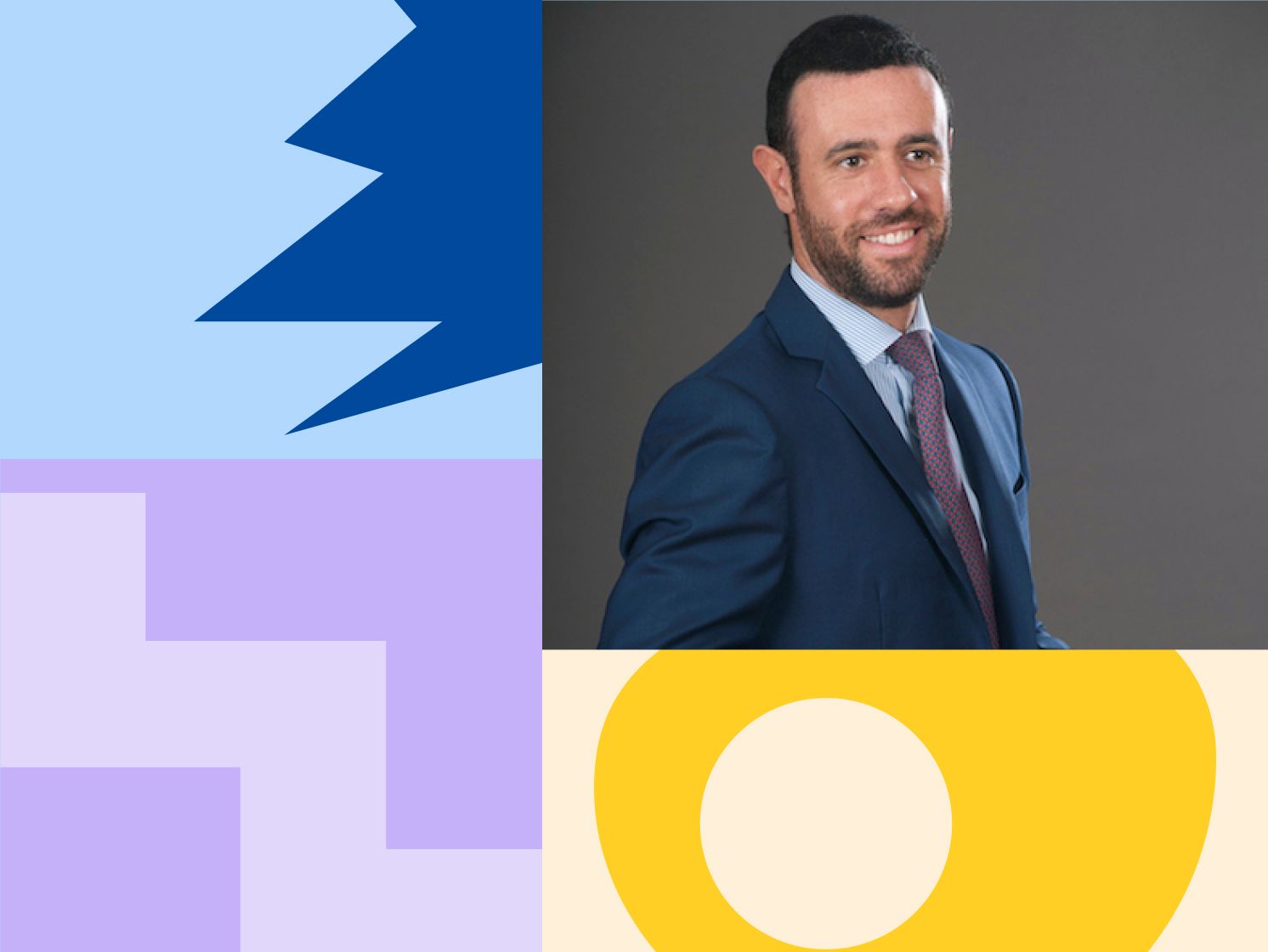Article
5 min read
Remote Leadership: Lessons from Deel’s Experience
Deel Dialogue

Author
Leslie Lee
Last Update
January 31, 2025

Leading in a remote-first world isn’t just a trend—it's a fundamental shift in how we approach leadership. As someone who has led 100% remote teams for the past five years, I’ve learned that remote work is more than just a different way of working; it’s a new way of thinking about leadership, communication, and team dynamics.
At Deel, remote work has always been our standard. With over 4,000 team members spread across 100+ countries, we’ve learned a lot about keeping our teams connected, motivated, and productive using the principles outlined below.
The remote work paradox
I used to spend three hours a day commuting to work; Now, I can’t even imagine how that was possible. Just the thought of having to do a commute again like that can set me into a panic.
Working at a remote-first company is now a non-negotiable for me. But for every benefit of remote work, there is also a shadow side.
Access to global talent vs. isolation
Remote work is like having the world at your fingertips when it comes to hiring. You’re no longer limited to just the talent in your city or even your country—you can bring in the best people from anywhere. At Deel, we’ve leveraged this to drive significant growth—achieving $500M in five years. But there’s a catch. Remote work can also make people feel isolated. I’ve had employees leave because they just couldn’t get used to working for a remote-only company. They missed the face-to-face interactions and found it tough to build and maintain those relationships that come more naturally in an office setting.
Flexibility vs. cohesion
One of the biggest perks of remote work is the flexibility. You get to work when you’re at your best and fit your job around your life, not the other way around. For me, that means I can have my meetings and do focused work in the mornings, and still be there to pick up my kids from school in the afternoon. But that same flexibility can be a double-edged sword. Without a set schedule, it’s harder to create a strong team culture or make sure everyone’s on the same page. When everyone’s working different hours, it can be tricky to keep that sense of togetherness and cohesion that’s so important for a team.
Autonomy vs. alignment
While remote work gives you more freedom, it also requires more effort to stay aligned and balanced. For people who really value autonomy and ownership, remote work can be a game-changer. It gives you the freedom to manage your tasks and set up your workspace in a way that sparks creativity and boosts job satisfaction. But there’s a flip side to that freedom. Without the right structure, it’s easy to get out of sync with your team’s goals or the company’s big picture. Keeping everyone on the same page and working toward the same vision isn’t as straightforward when you’re all scattered across different locations.
Redefining leadership for remote teams
Leading remotely requires more than just a change in logistics; it demands a fresh approach to how we engage and empower our teams.
Hire the right talent
At Deel, we’re really intentional about the kind of people we bring on board. We look for candidates who naturally align with the demands of remote work—self-discipline, strong communication skills, and the ability to work independently. For example, during the interview process, we ask candidates to describe how they’ve managed projects independently or dealt with communication challenges in previous remote roles. We also give them tasks that mimic real remote work scenarios to see how they handle these situations.
Set goals, then delegate
We spend a lot of time at Deel developing specific and measurable OKRs. Once those are in place, we hand over the reins to our managers. We empower them to own their projects and make decisions. Practically, this looks like setting up regular OKR review sessions where managers update on their progress and make adjustments as needed. We use tools like Jira and Slack to keep everyone aligned without micromanaging. This approach allows the people closest to the work to make decisions quickly, and we’ve seen it lead to faster project turnaround times and a higher sense of ownership.
Encourage flexibility
At Deel, the idea of a "set working schedule" doesn’t really exist. With employees spread across different time zones, flexibility is key. There are people who take Fridays off for Shabat and work on Sundays instead. There are people who start their day late after dropping their kids off at school or after taking a morning language class. We allow team members the flexibility to manage their own work schedules and methods.
We use shared Google Calendars where everyone marks their available hours, making it easier to find overlapping times for meetings. We’ve never implemented “core hours” to ensure overlap, but it naturally happens. This kind of flexibility doesn’t just make life easier—it drives creativity and productivity, as people can work when they’re most effective.
Establishing a strong team culture
In the world of remote work, creating a strong team culture is not just a nice-to-have; it’s essential for fostering engagement, collaboration, and overall team satisfaction. But how do we build and sustain a vibrant culture when our team is spread across different locations?
Have shared values and goals
A strong sense of shared purpose can help remote employees feel connected to the larger mission of the company. At Deel, everyone in the company is anchored around quarterly OKRs and we have leaders talk about our values at every All Hands meeting and remind people what that value looks like in real life.
Lean into transparency
Transparency is a big deal at Deel. When employees have access to information about company goals, decisions, and changes, they feel more included and valued. For example, at our quarterly All Hands meetings, we don’t just share high-level overviews—we dive into the details, showing specific numbers, challenges, and decisions that are shaping our strategy. We share the board deck with everyone so everyone in the company gets a view of the financials and what’s top of mind for the executive team. We even share news about upcoming acquisitions and trust our team to keep the information confidential until it’s public. By sharing so openly, we’re actively showing trust in our employees. That trust is crucial for fostering a positive remote work environment where everyone feels aligned and motivated.

Celebrate milestones and achievements publicly
Celebrating wins is important in any company, but it’s even more critical in a remote-only environment. At Deel, we have a quarterly recognition of values, where team members can shout out each other’s efforts. To make this more tangible, we’ve created a “Values in Action” award where employees can post stories of how their colleagues have lived our company values. Even our CEO, Alex Bouaziz, gets in on it, asking people to send him their accomplishments so he can celebrate with them, whether it’s a personal victory or a project milestone.

Give perks that truly matter
Perks shouldn’t just be about ticking a box—they should add real value to your team’s lives. At Deel, we’ve moved beyond the usual gym memberships or home office budgets. Instead, we offer opportunities for our team to connect in meaningful ways. For instance, Deel Travel allows employees to choose a colleague in another city or country to visit, and we cover the costs. This has led to some incredible cross-team collaborations and deepened relationships that wouldn’t have happened otherwise.
Challenging the status quo
In the remote work era, traditional leadership practices often need rethinking. What worked in a physical office may not always be effective or even appropriate in a virtual environment. Here are three areas in which Deel has challenged the status quo:
Discourage regularly scheduled meetings
Traditional leadership practices often emphasize frequent 1:1 meetings between managers and team members. At Deel, we actively discourage regular meetings. Instead, we encourage quick, ad-hoc discussions that keep decision-making agile and efficient. So in practice, that means that most Deelers, even the executive team, are available the same day for a quick 15-minute discussion because their calendars aren’t packed with meetings. This unblocks decision-making and makes work more productive.
Remove hierarchy
Inclusivity is vital in a remote setting. At Deel, we encourage practices that ensure everyone’s voice is heard, such as regular feedback loops and inclusive decision-making processes. There isn’t a concept of having to go through the proper channels. And it’s not just talk – our CEO regularly will regularly send messages to everyone in the company and encourage them to message him directly about what’s broken and what can be improved. And he’ll respond to every person too.
Rethink performance reviews
Traditional performance reviews often rely on annual or semi-annual evaluations, which can be too infrequent to provide meaningful feedback and development opportunities. In a remote environment, we think a more dynamic approach is beneficial. At Deel, we embrace ongoing feedback through our own talent management solution, Deel Engage. This approach fosters continuous improvement and adaptability, aligning better with the fast-paced nature of remote work.
Remote work isn’t just a trend—it’s the future of how we grow and evolve as businesses. By rethinking traditional practices and embracing new ways of leading, we can harness these challenges to fuel growth and innovation. At Deel, we’re not just adapting to remote work—we’re driving it forward, creating a work environment that’s not only built for today but is shaping the future of how the world works.

About the author
Leslie Lee is the Head of Marketing at Deel. With nearly 25 years of experience in B2B and B2C marketing, Lee has led brand and marketing in companies ranging from $50M to over $2B in revenue. A seasoned leader, she has built and led teams through various stages of growth, from start-ups to successful IPOs and beyond.















